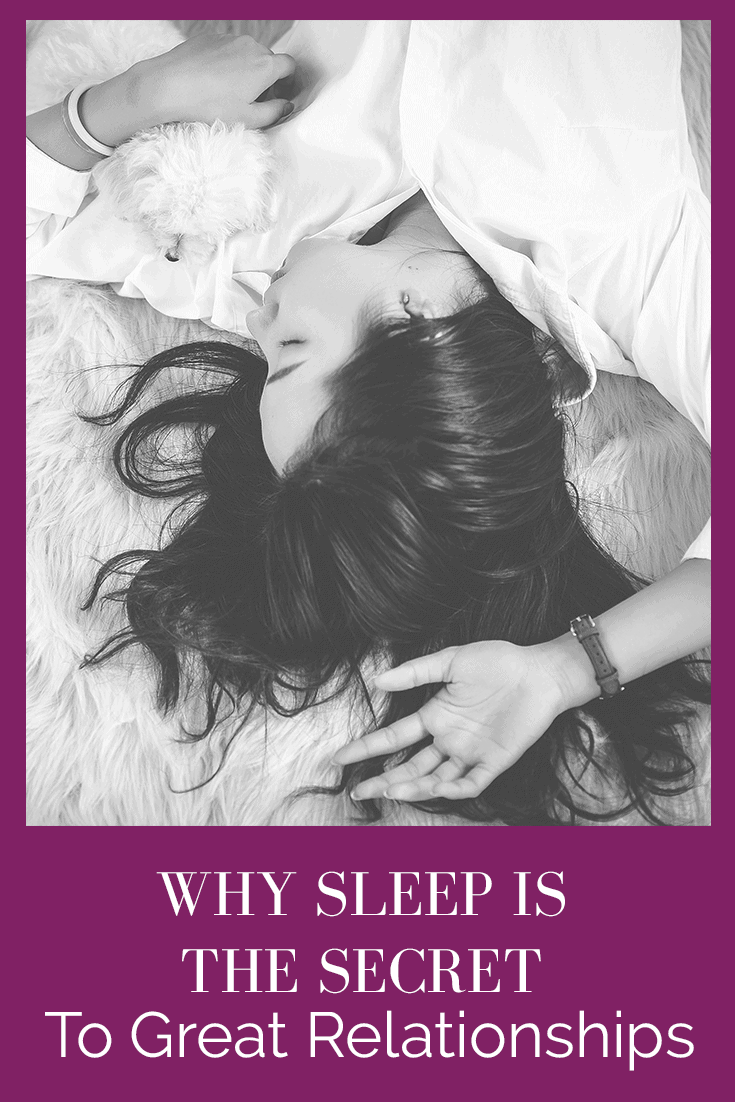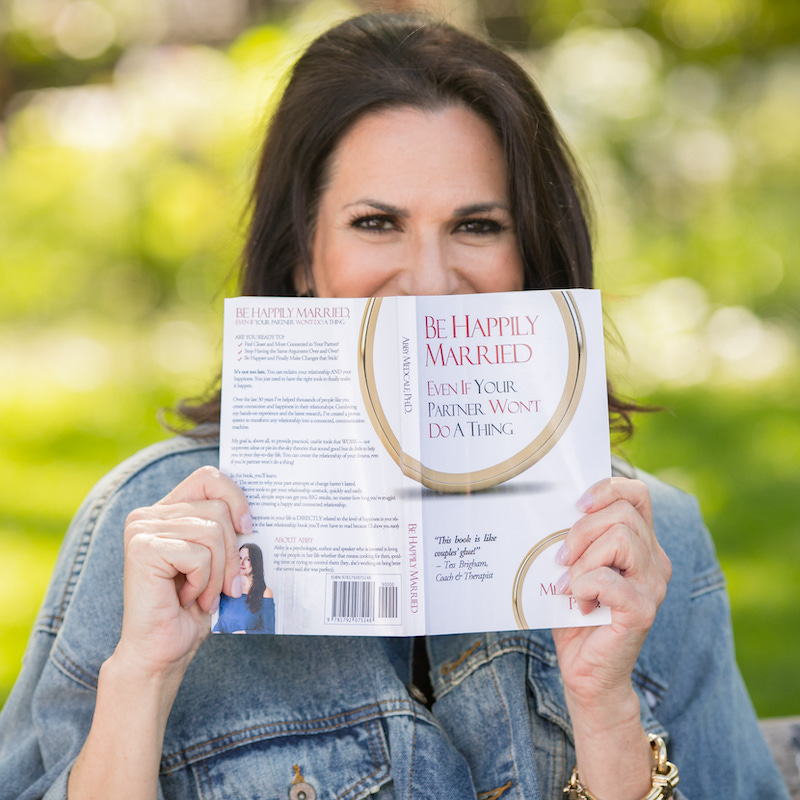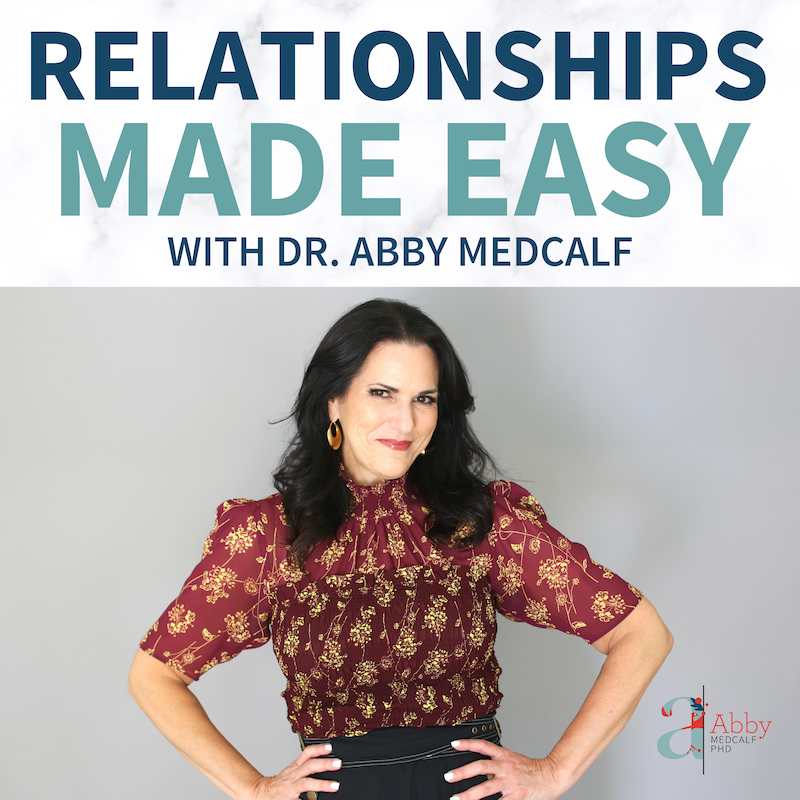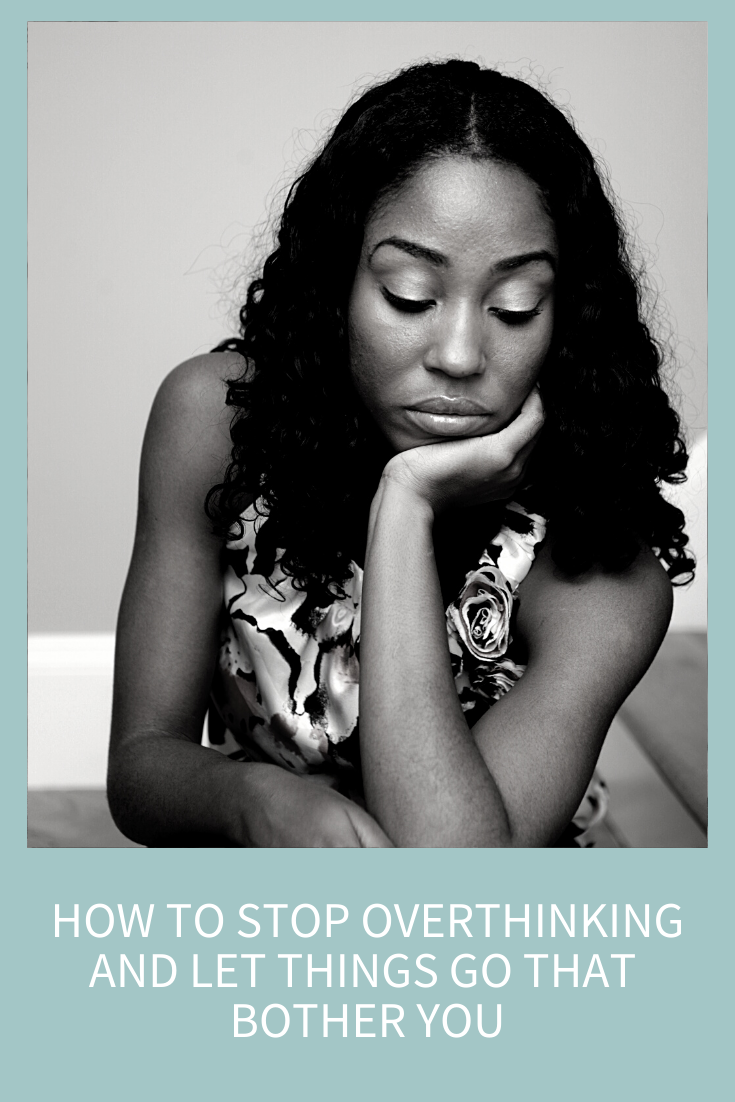
Your day doesn’t start when you turn off your alarm in the morning. Your day starts when you set the alarm the night before. Getting your butt to bed at a reasonable hour and then getting shut eye is key to having a good day. With good sleep you’ll feel closer to your partner, be more productive and creative at work, be a more patient parent and even lose weight and be more satisfied in your life overall. Sleep is the answer to your happy life!
I’m going to be talking a lot about good sleep as it relates to your love relationships, but good sleep applies to ALL your relationships. All the benefits that help you be a better partner, also help you be a better daughter, uncle, coworker, friend, boss and parent.
The sponsor for today’s blog is (drum roll please) MY BOOK!

Are you ready to:
- Feel closer and more connected to your partner?
- Stop having the same argument over and over?
- Be happier and finally make changes that stick?
If so, then my book is for you! Be Happily Married: Even If Your Partner Won’t Do a Thing is available on Amazon!
The Stages of Sleep
Stage One is so light that, if you got up during it, you might not realize that you’d even been sleeping. Researchers know you’re in the second stage because sleep-specific brain waves appear.
If you’re in Stage Two, you’ll know you’d been asleep if you wake up.
Stages Three and Four are considered deep sleep. In three, the brain sends out long, rhythmic bursts called delta waves and Stage Four is known as slow-wave sleep (yes, the brain waves are slow and deep in this stage).
Stage Four is the deepest form of sleep, and your brain is very far from conscious thought. If you wake up during Stage Four, you’ll be disoriented, unable to answer basic questions and want nothing more than to go back to sleep (researchers call this sleep drunkenness). The fifth and final stage is REM or Rapid Eye Movement sleep.
Stage Five is when most dreams occur and the brain is as active as it is when it is awake.
Improving Performance
Sleep is more important than food when it comes to improving performance. Sleep loss means mind loss. Sleep loss cripples thinking on every level. It hurts attention, judgment and reasoning, short-term memory and mood. Negative events get processed by a part of the brain called the amygdala while positive or neutral memories get processed by a different part called the hippocampus. Sleep deprivation hits the hippocampus harder than the amygdala. The result is that sleep-deprived people fail to recall pleasant memories but can remember bad ones just fine. In one famous experiment sleep-deprived college students were asked to memorize a list of words. As it turns out, they could remember 81% of the words with a negative connotation, like “cancer.” However, they could only remember 31% of the words with a positive or neutral connotation, like “sunshine” or “basket.”
Other risks of sleep deprivation (sleeping less than five hours per night) include weight gain, high blood pressure, weakened immune system, higher likelihood of getting into a car crash and an overall poorer quality of life (not to mention how darn grumpy we get).
When you sleep your brain is busy. It finally gets the chance to do all the things it couldn’t do all day while you were keeping it occupied (kind of like how you feel once the kids go to bed and you can finally clean the kitchen or binge watch Game of Thrones).
When you sleep your brain processes all the emotions and memories you had that day. When you wake up after a good night’s rest, you’ve now got the mental space to think clearly, create new memories, and reason your way through your day.
When you don’t get good sleep, however, your brain goes into survival mode. In his book The Sleep Solution: Why Your Sleep is Broken and How to Fix It, author W. Christopher Winter says, “Sleep deprivation is like falling into an icy river. The body shuts down circulation to the appendages and tries to keep the core warm. Your brain’s ability to do things gets whittled down to: find food, urinate, get through the day.”
Being warm and loving with your partner, patient with your kids, wanting to go do social things and remembering to pick up the dry cleaning all take a back seat.
Winter says, “All of the things it takes to make a relationship work are probably completely decimated by lack of sleep.”
Your Emotions Get Out of Whack
When you’re sleep-deprived, the part of your brain called your amygdala, which ties emotions to memories, malfunctions. This means that your brain will do things like produce more of a neurotransmitter than it should or less than is called for. Neurotransmitters are your brain’s chemical messengers and make us feel great things like happiness, pleasure, and safety or yucky things like rage, depression, and anxiety.
So, when you’re sleep deprived, even a little, you might overreact to something, feel numb and not have an appropriate response, or not even notice how someone else is reacting to something. Poor sleep has been linked many times to depression, anxiety and overreacting to life situations.
Bad sleep means you’re more likely to overreact to situations, events and people that normally wouldn’t upset you. This is literally when we make mountains out of mole hills as our reactions to things are amplified. Jennifer L. Martin, a clinical psychologist and behavioral sleep medicine specialist at UCLA says, “This can lead to more conflict and less satisfying relationships.”
Martin says, “If you’ve ever seen a 2-year-old who skipped a nap, you can see a version of how we all react to sleep deprivation in terms of our emotions,” says Martin.
When you’re well-rested you make better decisions, you’re more patient and you can really hear what your partner and others are saying because you can concentrate better so can truly listen to what’s being said! Hmmmm… listening, focusing on the other person, patience, understanding… if these aren’t basic building blocks of any successful relationship, I don’t know what is.
The Five Ways Sleep is Good for All Your Relationships, Backed by Research
- Sleep helps you be less angry and aggressive. Poor sleep leads to hypervigilance and being more quick to respond without thinking through consequences.
- Sleep ups your empathy game. When you don’t sleep well, the part of the brain that helps you understand what others are feeling and read their emotions doesn’t work as well.
- Sleep helps you be reasonable and patient. Good sleep means you won’t overreact to situations, keep a steadier mood and feel less stressed overall.
- Sleep gives you way more self-control. This is good for everything! It helps you act, not react, have that pause button so you can choose things like kindness and love and even make better choices with your eating, drug and alcohol consumption and your ability to get your butt to bed so you can have another good night’s sleep!
- Sleep makes you more grateful. Acknowledging what other people do for us is a big part of healthy, happy relationships. People who don’t sleep actually report feeling underappreciated by their partners.
Five Tips for Great Sleep
The bottom line: You need about eight hours of sleep each night if you’re an adult (even if you don’t act like one). But, if you’re finding you can’t sleep, how are you going to get them? Mary Carskadon of Brown University, one of the world’s leading sleep researchers, offers some hacks for what to do when you can’t sleep:
Tip 1: Reduce blue light exposure in the evening
If you’re wondering “why can’t I sleep?” know this: being exposed to light during the day is a good thing, but being exposed to it at night is a big problem.
Blue light, also called high energy visible (HEV) light, is a type of light with short wavelengths emitting a higher energy. It penetrates deep into the eye suppresses the natural release of melatonin so disrupts sleep.
Besides sunlight, the most common sources of blue lights are digital screens (TVs, computers, smart phones and tablets).
More than 80% of Americans report using digital screens in the hour before going to sleep, which has been shown to disrupt sleep patterns by increasing alertness in the brain.
Blue light tricks your body into thinking it’s still daytime, so not time to sleep. Reducing blue light exposure in the evenings is crucial to a good night’s sleep.
To reduce nighttime blue light exposure you can do the following:
- Wear glasses that block blue light. There’s some controversy about the effectiveness of these glasses, but a 2017 study by the University of Houston found that participants wearing the glasses showed about a 58% increase in their nighttime melatonin levels.
- You can use an app to block blue light on your computer
- Get an app that blocks blue light on your smartphone.
- Stop watching TV and avoid all digital devices two hours before going to bed.
Tip 2: Wake up and go to sleep at consistent times
Being consistent with your sleep and waking times is one of the best things you can do to help your ability to sleep and the quality of that sleep.
On the weekends, you can extend this by one to two hours on either side (waking up and going to sleep a couple hours later than you do during the week) and still have the same benefits.
A word about naps: If you need to make up for sleep debt, it’s better to take a nap than to sleep later since sleeping in will disturb your regular sleep cycle. However, nap in the early afternoon and keep it to 30 minutes.
Tip 3: Get Your Bedroom in the Mood
There are a lot of things you can do to get your bedroom environment ready for you to catch some serious Z’s.
The big-ticket items to pay attention to are:
- Set the thermostat 3 degrees below your daytime norm; 65 to 68 degrees for most of us. Your body temp naturally drops when you sleep, and a cool room helps it along. If you don’t have/use a thermostat, just open a window so the room is slightly cool.
- Make sure any external noises are at a minimum. Use a noise machine (sounds counterintuitive but they work) if you can’t control outside sounds.
- Minimize any lights in your bedroom from outside your window (blackout curtains are a great remedy) or within the bedroom (artificial lights like alarm clocks or your phone.
- Make sure your bed is arranged in the room in an area with most sound minimization and best sleep temperature. In addition, make sure the bed itself is comfortable for you to sleep.
Don’t Do Anything in Your Bed Besides Sleep and Sex
You don’t want to associate your bed with anything that’s about being awake. You want that bedroom (and bed) to call to you only for sleep and sex. Try not to have your office in the bedroom if possible (it’s hard in these days of self-quarantine) but do your best to help signal the brain that going in the bedroom or being on your bed are times to feel sleepy or sexy, but nothing else.
Tip 4: Let Your Partner Sleep!
Remember that you and your partner are a shared resource. If at least one of you gets sleep, that’s a good thing! Don’t compete or be jealous around your partner’s sleep.
Don’t ask your partner to miss sleep so you can spend time together. It’s better to spend 30 minutes of truly awake time during the day at some point (maybe a phone call date at lunch) than lay around for hours binge watching something “together” and not going to bed.
Research has shown that couples who both slept less than seven hours were more hostile with one another than when at least one partner slept more. When one partner had more sleep, arguments were more likely to end with a positive result!
Having said all that, research shows that women actually need about 20 minutes more sleep than men, on average. It’s believed that this is because women use more of their brain when multitasking during the day. So, if possible, let her sleep in just a little longer in the morning.
Can We Sleep in Different Beds?
Yes! Research has shown that if you share a bed, about 50% of any sleep disturbance you have is caused by your partner. In his book, How to Sleep Well: The Science of Sleeping Smarter, Living Better and Being Productive, Dr. Neil Stanley says, “If they’re disturbing your sleep because of snoring or fidgeting, you may want to consider separate beds or even a separate bedroom.”
Getting the sleep is the top priority – just make sure you get lots of that close time in other ways.
A word about sex and snuggling
My man is a snuggler. Yup. He wants to be right up on me when we’re sleeping. Now, at about 6’4” and 210 pounds, I can sometimes feel a bit squished by his eagerness, but I’m not going to complain (Well, I did try to complain to my girlfriends once, “All he wants to do is touch me and be close” and was met with many eye rolls and very little sympathy).
Interestingly, the research supports Gary’s snuggling habits. In one study, 94% of couples who touched while sleeping reported being happy in their relationship, compared to only 68% of couples who didn’t touch while sleeping reporting the same.
So, snuggling is great for your relationship but sleep itself is even more important. So, start off in bed together and make sure you connect and have time for sex and the snuggles but then it’s OK to separate and get that great sleep so you can be a loving, patient partner in the morning.
Tip 5: Get Your Smart Phone Away from Your Bed(room)
You heard me. If you want good sleep, you’ve got to put the phone away. And by “away,” I mean AWAY! Your phone and everything on it, is engineered to keep you using it. All the apps and “stuff” on your phone create a compulsive desire, a compulsive need to continue checking, responding, refreshing, reading, scrolling, posting, clicking, or playing. It feels good and you’ve got a, literally, limitless opportunity for more and more stimulation.
I know it’s hard to put it away but put it away you must! I know your excuses:
- I use it as my alarm clock. Either buy an actual alarm clock (they still make them) or put it across the room, far away, in airplane mode.
- What if there’s an emergency and someone calls? Really?! What emergency is this that you couldn’t figure it out in the morning? Unless you’re literally a brain surgeon, I don’t want to hear it. Or, get yourself a house phone (they still exist too) and give that number to your aging parents, the hospital that might need to call you to come and do emergency surgery or whoever else you think might need to call in the middle of the night (and I would ask you, when was the last time you had a middle-of-the-night true emergency call?)
The stimulation of your smartphone makes it very hard to put down but it’s that very over-activated response that disturbs your sleep.
Since I want to give you everything but don’t want to keep you here too long, I’ve created an amazing free download for you called Sleep Hacks 101. In it, I’ll have some of the things I’ll cover here like the stages of sleep but I’ll also be giving you
- Even more tips for getting a good night’s sleep (since one size doesn’t fit all) AND
- Tips for getting back to sleep if you wake up in the night







